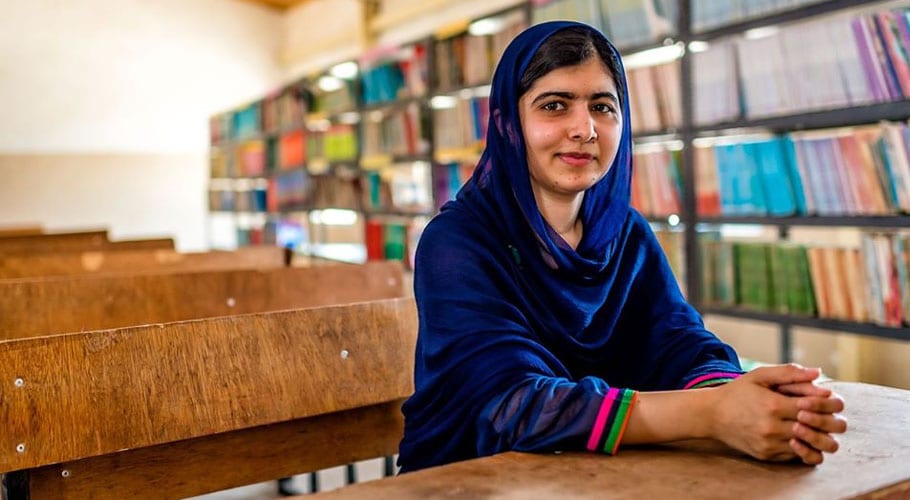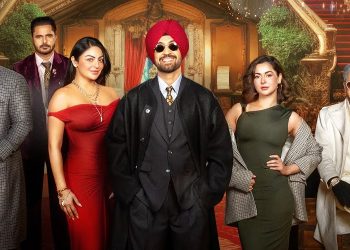Malala Yousafzai is a Pakistani activist for female education and the youngest Nobel Prize laureate. Malala is especially known for human rights advocacy the education of women and children in her native Swat Valley in Pakistan’s Khyber Pakhtunkhwa province, where the local Taliban had at times banned girls from attending school.
Early life and education
Malala was born on 12 July 1997 in the Swat District of Pakistan’s Khyber Pakhtunkhwa province, into a lower-middle-class family. She is the daughter of Ziauddin Yousafzai and her family is Sunni Muslim of Pashtun ethnicity, belonging to the Yusufzai tribe.
Fluent in Pashto, Urdu and English, Yousafzai was educated mostly by her father, Ziauddin Yousafzai, who is a poet, as well as a school owner.
Inspired by Muhammad Ali Jinnah and Prime Minister Benazir Bhutto, Malala started speaking about education rights as early as September 2008.
As a BBC blogger
In late 2008, Aamer Ahmed Khan of the BBC Urdu website and his colleagues came up with a novel way of covering the Taliban’s growing influence in Swat.
Malala’s story starts in 2009 when the Taliban had taken complete control of her home region in Pakistan’s Swat Valley and banned education for girls.
There was no voice of resistance until a defiant 11-year-old, known only as her pseudonym Gul Makai, showed opposition in a secret diary for the BBC.
The name was adopted by Malala from a Pushto folklore to avoid Taliban attention. The blog was Malala’s first window to the outside world and brought her to the public’s attention.
After a few years of running a ruthless regime of oppression, the Taliban was finally defeated by a successful military operation in the latter half of 2009. Slowly life in Swat Valley came back to normal — but not for Malala.
Attack on Malala
On the ill-fated afternoon of 12 October 2012, on her way home from school, Taliban terrorists stopped her school van, identified Malala and shot her in the head. As a result, she sustained severe bullet injuries.
Later, she was subsequently flown in an air ambulance provided by the United Arab Emirates to Queen Elizabeth Hospital in Birmingham, U.K., which specializes in head injuries.
Malala was reported to have barely survived after doctors in Pakistan and then England performed multiple surgeries on her face and head.
National and International reaction
Barack Obama, Michelle Obama and their daughter Malia meet Yousafzai in the Oval Office, 11 October 2013. The murder attempt received worldwide media coverage and produced an outpouring of sympathy and anger.
Protests against the shooting were held in different areas of Pakistan the day after the attack, and over 2 million people signed the Right to Education campaign’s petition, which led to the ratification of the first Right to Education Bill in Pakistan.
Determined to work for the cause of women’s education
Today Malala lives in the UK and has repeatedly vowed to continue working for the cause of women’s education in Pakistan, especially in those areas of the country where extremists and militant outfits are said to have been blowing up girls’ schools.
Awards and honors
In October 2011, Archbishop Desmond Tutu, a South African activist, nominated Malala for the International Children’s Peace Prize of the Dutch international children’s advocacy group Kids Rights Foundation.
She was the first Pakistani girl to be nominated for the award. Her public profile rose even further when she was awarded Pakistan’s first National Youth Peace Prize on 19 December 2011 by former Prime Minister Yousaf Raza Gillani. She had the honor of becoming the youngest-ever Nobel Peace Prize winner in 2014.
Malala Day
In April 2017, United Nations Secretary-General Antonio Guterres selected Malala Yousafzai to be a UN messenger of peace, the highest honor bestowed by the UN chief on a global citizen.
The UN has designated July 12, which is Yousafzai’s birthday, Malala Day in honor of the young woman who has been a prominent activist for female education since her early teens. As a young girl, Malala Yousafzai was not allowed to go to school.
But She refused to stay home and spoke out for education and was almost killed for standing up for her beliefs. To this day, Malala continues to work to ensure that every girl around the world has the chance to go to school.
On 12 July 2020, Yousafzai’s 23rd birthday, in her message she appealed to the UN to call for worldwide access to education.




































